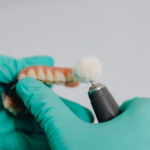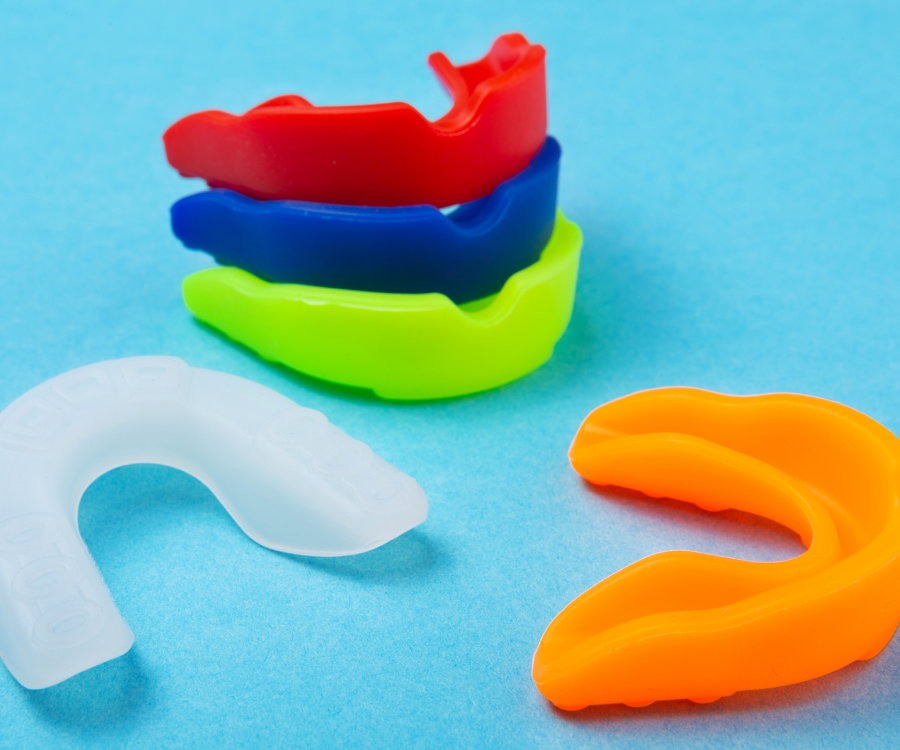Participating in sports offers numerous benefits, from physical fitness to teamwork and personal growth. However, it also carries the risk of injuries, particularly to the face and mouth. That’s where mouthguards come in as an essential piece of protective gear for athletes of all ages and skill levels.
Why are Mouthguards Crucial?
Mouthguards act as a cushion, protecting your teeth, lips, cheeks, and tongue from impact. They significantly reduce the risk of:
- Broken or chipped teeth: A direct blow to the face can easily result in dental fractures, which can be painful, costly to repair, and sometimes lead to tooth loss.
- Knocked-out teeth: In severe collisions, teeth can be completely dislodged. A mouthguard helps keep your teeth in place, increasing the chances of successful reimplantation if an accident occurs.
- Soft tissue injuries: Cuts and bruises to the lips, gums, and inner cheeks are common in contact sports. Mouthguards provide a barrier, minimizing these injuries.
- Jaw fractures: A strong impact can lead to jawbone fractures, requiring complex treatment. Mouthguards absorb some of the force, reducing the risk of such injuries.
- Concussions: While not definitively proven, some studies suggest that mouthguards may help lessen the severity of concussions by absorbing and distributing the force of an impact.
Who Needs a Mouthguard?
While mouthguards are most commonly associated with high-contact sports like football, hockey, and boxing, they are recommended for a wide range of activities, including:
- Basketball
- Soccer
- Baseball
- Softball
- Lacrosse
- Martial arts
- Skateboarding
- Cycling
Even in non-contact sports, accidental collisions or falls can occur, making mouthguards a worthwhile investment for athletes of all kinds.
Types of Mouthguards
There are three main types of mouthguards available:
- Stock mouthguards: These are pre-made and readily available at most sporting goods stores. They are the most affordable option but offer the least protection due to their generic fit.
- Boil-and-bite mouthguards: These are also available at sporting goods stores. They are softened in hot water and then molded to the teeth, providing a more customized fit than stock mouthguards.
- Custom-fit mouthguards: These are made by a dentist based on an impression of your teeth. They offer the best protection, comfort, and fit, but are also the most expensive option.
Choosing the Right Mouthguard
When choosing a mouthguard, consider the following:
- Sport: The level of protection needed may vary depending on the sport.
- Fit: The mouthguard should fit snugly and comfortably, allowing for easy breathing and speech.
- Comfort: It should not irritate the gums or soft tissues.
- Durability: Choose a mouthguard made from high-quality materials that can withstand repeated use.
Taking Care of Your Mouthguard
To ensure your mouthguard remains effective and hygienic, follow these tips:
- Rinse it with cold water or mouthwash after each use.
- Clean it regularly with mild soap and water.
- Store it in a well-ventilated container.
- Replace it if it becomes damaged or worn.
- Visit your dentist regularly for checkups and to ensure your mouthguard still fits properly.
Conclusion
Mouthguards are an essential piece of protective equipment for athletes of all ages and skill levels. They play a vital role in preventing dental and facial injuries, allowing athletes to participate in their chosen sports with confidence. By investing in a quality mouthguard and taking proper care of it, you can protect your smile and overall oral health, ensuring a safe and enjoyable sporting experience.








